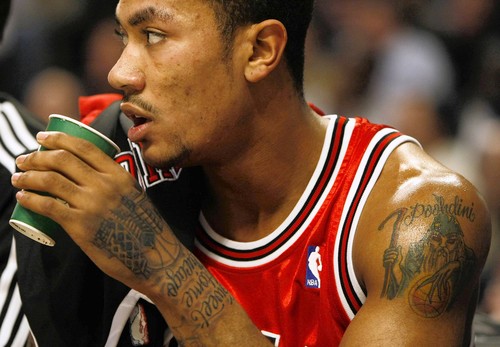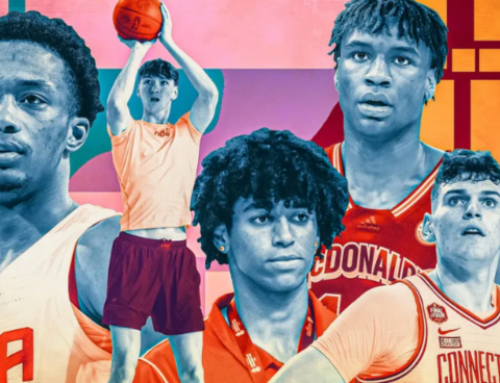Derrick Rose's MVP Mindset: "Why Can't I?"
At just 22 years old, Chicago’s own Derrick Rose is the youngest player ever to win the NBA’s Most Valuable Player award. After establishing himself as one of the best players in the league in just a few years—Rookie of the Year in 2008-09 and two All-Star appearances—he asked himself at the beginning of the current season, “Why can’t I be MVP?”
Among well-rounded players and all-around performers, Rose is tops. Not only did he lead the Bulls to their first 60-win season and number-one Playoff seed since 1997-98, he averaged 25 points and 7.7 assists per game while doing it—becoming the only player in the league to crack the top 10 in both categories.
But to win the MVP award, the Bulls point guard had to totally dedicate himself to the game. During his acceptance speech, the always humble Rose said, “Saying that I wanted to be MVP . . . I wasn’t trying to be cocky at all. I knew I put a lot of hard work in—in the summer, in the off-season—and I just wanted to push myself.”
Bulls’ general manager Gar Forman made a great point about Rose: “The truly great ones want to be coached hard, and they want to be held accountable . . . Derrick Rose wants to be held accountable.” Rose knew he couldn’t achieve MVP status without that mindset. Accepting responsibility—to himself, to his teammates, to the City of Chicago—and allowing others to influence his game—were the first steps to carrying his team to championship contention in outstanding fashion.
“Why can’t I?” can apply to any goal we set for ourselves. Rose’s mindset raised the bar for himself and helped him achieve his goal. It can do the same for you.
Source: adidas, nba.com
Photo: inkedpros.com
RECOMMENDED FOR YOU
MOST POPULAR
Derrick Rose's MVP Mindset: "Why Can't I?"
At just 22 years old, Chicago’s own Derrick Rose is the youngest player ever to win the NBA’s Most Valuable Player award. After establishing himself as one of the best players in the league in just a few years—Rookie of the Year in 2008-09 and two All-Star appearances—he asked himself at the beginning of the current season, “Why can’t I be MVP?”
Among well-rounded players and all-around performers, Rose is tops. Not only did he lead the Bulls to their first 60-win season and number-one Playoff seed since 1997-98, he averaged 25 points and 7.7 assists per game while doing it—becoming the only player in the league to crack the top 10 in both categories.
But to win the MVP award, the Bulls point guard had to totally dedicate himself to the game. During his acceptance speech, the always humble Rose said, “Saying that I wanted to be MVP . . . I wasn’t trying to be cocky at all. I knew I put a lot of hard work in—in the summer, in the off-season—and I just wanted to push myself.”
Bulls’ general manager Gar Forman made a great point about Rose: “The truly great ones want to be coached hard, and they want to be held accountable . . . Derrick Rose wants to be held accountable.” Rose knew he couldn’t achieve MVP status without that mindset. Accepting responsibility—to himself, to his teammates, to the City of Chicago—and allowing others to influence his game—were the first steps to carrying his team to championship contention in outstanding fashion.
“Why can’t I?” can apply to any goal we set for ourselves. Rose’s mindset raised the bar for himself and helped him achieve his goal. It can do the same for you.
Source: adidas, nba.com
Photo: inkedpros.com












